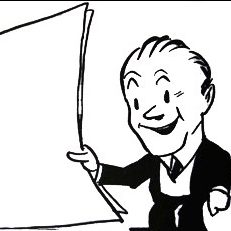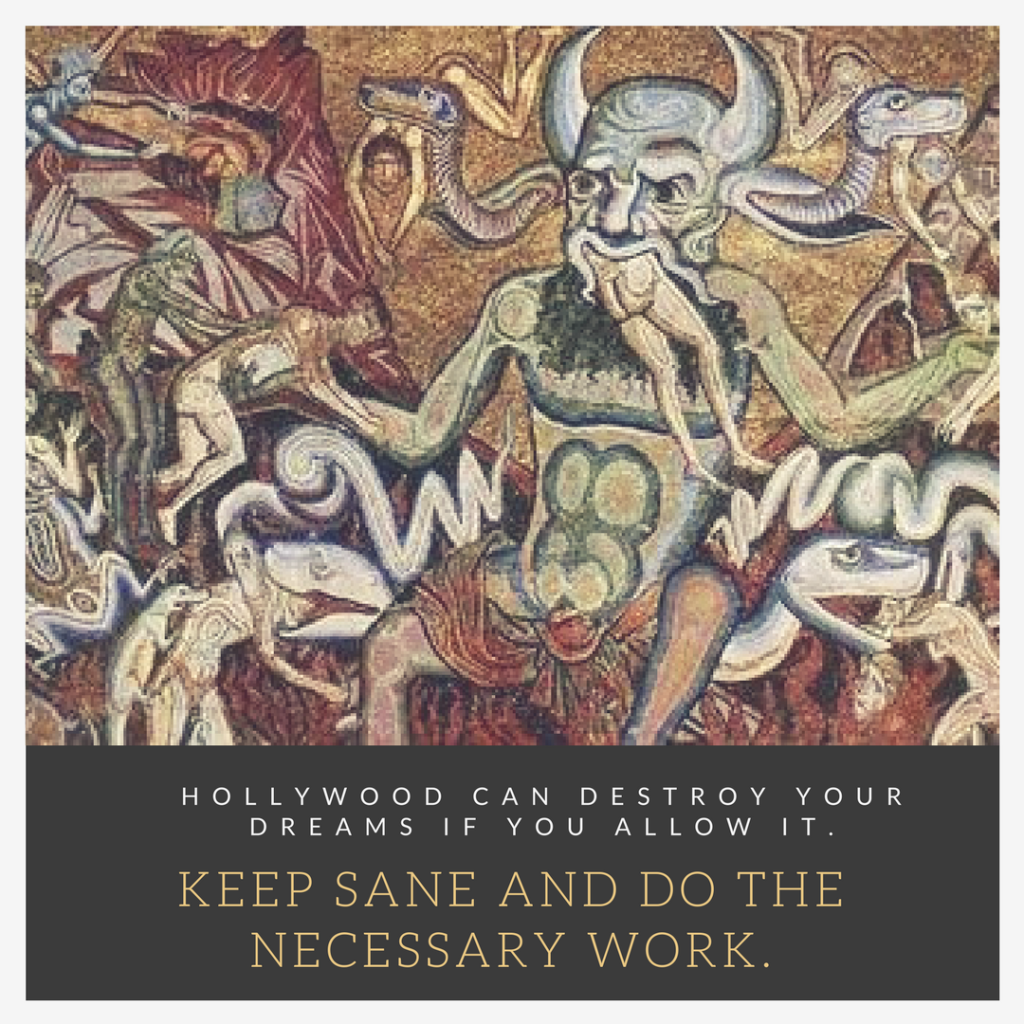I always experience these emotions as I finish a new screenplay: A downhill steamroller toward the final scene, followed by a powerful feeling of accomplishment because it’s been my privilege to unleash another story upon the world. I hit a writing milestone last December having completed my twenty-fourth screenwriting assignment that was my forty-second feature screenplay written on my long haul journey. My characters have guided me through their story and now it’s over with me typing FADE OUT—THE END and turning in the first draft to the producer. We know it’s never truly over until your script is produced and the movie released, but it’s over for this draft. It may just be the first of many drafts during the rewrite process, but an accomplishment nonetheless. The creative highs help me through the writing process, and I have to bid a sad farewell to these characters — the ones I’ve known so intimately for the past 105 pages. When I finish the script’s final draft and it goes into production, the actors bring my characters to life under the clear vision of the director. That’s the time writers need to let go and watch the magical process of filmmaking as your other collaborators take over.
As I’ve mentioned before, when I finish a script, I print a hard copy, let it settle for a few days, and then go to a coffee shop with a pen and start my polish. I agonize over the structure, punctuation, characters, and dialogue throughout my first pass. I look for typos and those pesky “widow/orphan words.” My creative high still burns as fuel to get me through this first pass of the script. Many times, I’m shocked at how good the first draft reads as I figure out ways to make it better before I deliver the second draft to the producers by my contracted deadline.
The next step? Wait for notes and hopefully move onto a different project during the producer’s reading period. When the notes do come in, I finish the rewrites and turn in my final draft and that’s when I notice that my creative high begins to crash and the previous month of creative energy quickly fades. As my noisy mind grows louder, I slip into the “creative lows” and urgently need to fill my mind with new stories and more writing. I feel the overpowering need to start my next project, or I’ll slip even deeper into the creative lows — a rough place to land after a successful month of screenwriting.
When I’m not writing, I notice the creative void in my life and miss those creative highs. They can become addictive as I enjoy seeing the story unfold in my mind as if I was watching the actual movie. When I’m working on a script assignment, I’m committed to finishing it because I’ve signed a contract and have been paid to finish the job. Many times it feels like when I’m away from the script, the characters sit waiting for me to get back to the keyboard so they can move forward on their journey. Even if the idea wasn’t originally mine because it’s an assignment job, I make it mine and embrace the story as my own as I’ll need that same conviction to finish.
If I don’t immediately jump onto a new project, I find myself needing to be creative, so I start working on new ideas and pitches or treatments and outlines. The key to a stable and healthy creative mind is being aware of the creative lows and doing your best to avoid this dangerous place. The lows can make you procrastinate as fear may creep into your mind and you avoid working on your next project because you might be afraid it will not be good enough or perfect. The “writer’s fraud” syndrome could also emerge as many writers experience the feeling they only achieved their success by chance and not from their talents. Avoid this soul-sucking place by immersing yourself in works from other artists for inspiration.
You can catch up watching movies or TV series that you have always wanted to see and study. I’ve recently been on a western movie tear and have watched nearly a dozen classics of the genre. I watched a masterpiece film that was brought to my attention and its story structure was an inspiration. This film energized me to work on my old action spec that I’ve been tinkering with over the years. There is nothing quite like being inspired and energized by seeing a classic movie that makes it look so easy.
Other things you can do to fight back against the creative lows is listening to music or attending a concert, poetry reading, musical, play, art exhibit, or museum to keep your mind fresh and feed your creative soul. Try your hand at drawing or painting. Venture out and connect with like-minded people and work on their creative projects. If you have an agent or manager, have them schedule you a lunch or coffee with their other clients or professional contacts in all aspects of the film business. Soak up their knowledge and use your newfound experiences to fuel your forward momentum. Also attend workshops with professional guest speakers and catch screenings of upcoming films or become involved in local film festivals to surround yourself with creativity.
Do not underestimate the powerful inspiration that nature offers creatives. I love hiking in the mountains or taking long walks in nature and always find something to inspire me. I have been on countless hikes where I figured out a story issue or came up with a missing plot twist as a result of freeing my mind in the wild. As a screenwriter’s full life becomes a vital part of any ongoing creative journey, the process requires you to constantly take chances and push yourself out of your comfort zone. This is particularly important regarding the material you write. You’ll grow as a person and as a screenwriter if you continue to challenge yourself and experience new adventures that you can draw upon for authenticity in your work.
If you find yourself coming down from the creative highs of finishing your screenplay and slipping into the lows, do something creative. You never know where you’ll find inspiration and that’s why you should constantly expose yourself to the arts. This discipline will also help you keep a full creative well and a screenwriter’s arsenal ready for use. If you catch yourself early enough before the creative lows cloud your outlook, you’ll stay upbeat, your creative energy will flourish, and you will return to screenwriting again sooner than later.
Keep writing and keep the faith.
Scriptcat out!
Copyright © 2024 by Mark Sanderson on MY BLANK PAGE blog. All rights reserved.
Follow me on X: @scriptcat
Subscribe to my YOUTUBE screenwriting page where you can find 78 videos about the screenwriting journey.
Did you just complete your latest screenplay or finish a new draft? Is it time for in-depth consultation? Check out my services by clicking this LINK to visit my website.
Need help navigating Hollywood’s trenches as you pursue your screenwriting career? Consider my book available on Amazon with 56 FIVE STAR reviews! (click on book cover for link to purchase)
It’s a long haul journey to reach any level of screenwriting success. If your passion drives you to embark on this crazy adventure of a screenwriting career, you’ll need to prepare for survival in Hollywood’s trenches. Talent is important, but so is your professionalism and ability to endure criticism, rejection, and failure over the long haul. The odds may be stacked against you, but the way to standout in this very competitive business is to create a solid body of work and build a reputation as a team player and collaborator. The rest is just luck — a prepared screenwriter who meets with an opportunity and delivers the goods. “A Screenwriter’s Journey to Success” (2024 updated edition) will help you prepare for your own journey with the necessary, tips, tricks and tactics that I’ve developed over the past twenty years of working in the film industry. It’s time to start living your dream as a screenwriter in Hollywood.
Enjoy some quotes for today… taken from my blog page QUOTE OF THE DAY…
“Writers, like most human beings, are adaptable creatures. They can learn to accept subordination without growing fond of it. No writer can forever stand in the wings and watch other people take the curtain calls while his own contributions get lost in the shuffle.”—Rod Serling
“The well is where your “juice” is. Nobody knows what it is made of, least of all yourself. What you know is if you have it, or you have to wait for it to come back.”—Ernest Hemingway
“I have no idea who the characters are, later, their personalities take over anything I might want to do. I end up writing not from my own will, but from theirs—they come alive as I write and make me do things that I couldn’t have planned.”—Akira Kurosawa
“There’s a powerful magic about being a writer that I still marvel at.”—Sidney Lumet
“As an artist, I feel that we must try many things — but above all we must dare to fail.”
—John Cassavetes
Paddy Chayefsky on cutting/editing:
If it should occur to you to cut, do so. That’s the first basic rule of cutting. If you’re reading through and stop, something is wrong. Cut it. If something bothers you, then it’s bad. Cut it. If you can cut inside the speech, you’re really cutting most effectively. It’s purifying, it’s refining. Making it precise. Precision is one of the basic elements of poetry. My own rules are very simple. First, cut out all the wisdom; then cut out all the adjectives. I’ve cut some of my favorite stuff. I have no compassion when it comes to cutting. No pity, no sympathy. Some of my dearest and most beloved bits of writing have gone with a very quick slash, slash, slash. Because something was heavy there. Cutting leads to economy, precision, and to a vastly improved script.








 I hope you’ve been creating new opportunities that have pushed your screenplays closer to success. Trust me, I know if can feel like you’re banging your head against a wall hoping for a breakthrough, but finding the same results of rejection and criticism. I truly hope you’re busy creating a solid body of work and forging ahead on your screenwriting journey. I hope that I’ve been able to offer a few nuggets of advice that you’ve found helpful. In addition to my tips on Twitter (
I hope you’ve been creating new opportunities that have pushed your screenplays closer to success. Trust me, I know if can feel like you’re banging your head against a wall hoping for a breakthrough, but finding the same results of rejection and criticism. I truly hope you’re busy creating a solid body of work and forging ahead on your screenwriting journey. I hope that I’ve been able to offer a few nuggets of advice that you’ve found helpful. In addition to my tips on Twitter (



